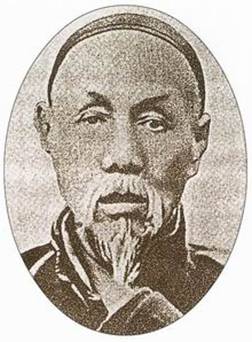Lin Shu facts for kids
Lin Shu (born November 8, 1852 – died October 9, 1924) was a famous Chinese writer. He is best known for bringing Western stories to many Chinese readers. What's amazing is that he didn't know any foreign languages himself!
Working with other people, Lin Shu helped translate over 180 books. Most of these were novels. They came from 98 writers in 11 different countries. These books were translated from English or French into Literary Chinese, which was a traditional style of writing.
Contents
Lin Shu's Life
Early Years and Learning
Lin Shu was born in Min County, which is now Fuzhou City, in Fujian Province, China. He passed away in Beijing. His family was not rich, but he loved reading Chinese books. He worked very hard to understand them deeply.
In 1882, he earned the title of Juren. This was a special honor given to scholars who passed a difficult test. This test was part of the old imperial examination system at the provincial level. Young Lin Shu believed that China should learn from Western countries. He thought this would help China grow and become stronger.
How Lin Shu Translated Books
In 1897, Lin Shu's wife passed away. To help him feel better, his friend Wang Shouchang suggested they translate a book together. Wang Shouchang had studied in France. They chose The Lady of the Camellias by Alexandre Dumas.
Wang Shouchang would tell Lin Shu the story in Chinese. Then, Lin Shu would write it down in Classical Chinese. This translated book was published in 1899. It became very popular right away! Many smart people realized that translated stories could help share new ideas. During Lin Shu's time, many scholars used translations to promote new ways of thinking.
Lin Shu was also known as a guwenjia, which means a master of ancient-style writing. He used this traditional Chinese style to translate Western novels. He wanted to connect classical Chinese with Western literature.
He made his translations more direct and shorter than the originals. This was to make them easier for Chinese readers to enjoy. As a famous translator, Lin Shu used his imagination to bring foreign stories to life for Chinese people.
What Scholars Say About Lin Shu
For a while, Lin Shu's translations were not widely discussed. But then, in 1963, a famous essay called "Lin Shu's Translations" was written by Qian Zhongshu. This essay brought new interest to Lin's work. In 1981, the Commercial Press, which first published many of Lin's translations, reprinted ten of his books.
Qian Zhongshu said that Lin Shu was like a "matchmaker." He connected Western literature with Chinese readers. Qian himself was inspired by Lin's translations to learn foreign languages. Qian also noted that Lin Shu sometimes changed or shortened the original stories.
Lin Shu's translating career lasted almost 30 years. Qian Zhongshu divided it into two parts. In the first part (1897–1913), Lin's translations were full of energy. After that, his translations became less exciting. He mainly translated to earn a living.
During the New Cultural Movement, Lin Shu was seen as someone who defended Literary Chinese. He did not completely oppose using Vernacular Chinese, which was a more common, spoken style. In fact, he wrote some poems in vernacular language. However, he did not agree with completely getting rid of Literary Chinese, as some people suggested.
See also
 In Spanish: Lin Shu para niños
In Spanish: Lin Shu para niños
 | William M. Jackson |
 | Juan E. Gilbert |
 | Neil deGrasse Tyson |


